
The dam has been built in a remote region of Ethiopia, near the border with Sudan Office of Ethiop
After outfoxing Egypt on the diplomatic stage for more than a decade, Ethiopia is set to officially inaugurate one of the world’s biggest dams on a tributary of the River Nile, burying a colonial-era treaty that saw the UK guarantee the North African nation the lion’s share of its water.
The dam – built on the Blue Nile at a cost of about $5bn (£3.7bn), with a reservoir roughly the size of Greater London – has led to a surge in Ethiopian nationalism, uniting a nation often polarised along ethnic lines and mired in conflict.
“Ethiopians may disagree on how to eat injera [their staple food], but they agree on the dam,” Moses Chrispus Okello, an analyst with the South Africa-based Institute for Security Studies think-tank, told the BBC.
“They do not see it as a pile of concrete in the middle of a river, but as a monument of their achievement because Ethiopians, both at home and in the diaspora, funded the dam’s construction. There were waves and waves of appeals for contributions when construction started in 2011.
“The government also issued bonds that were bought by companies and workers. So, the sense that all Ethiopians own the dam has grown exponentially, and its inauguration is a source of great pride for the nation,” Mr Okello said.
Named the Grand Ethiopian Renaissance Dam (Gerd), it is Africa’s largest hydro-electric plant, raising hopes that not only will it meet the 135 million-strong population’s energy needs but it will also give the country “energy hegemony” and boost its foreign currency earnings, the analyst added.
Ethiopia was planning to increase the sale of electricity to neighbouring countries such as Kenya and Djibouti, with ambitions of building a transmission network to cross the Red Sea to sell to Middle Eastern states like Saudi Arabia, he said.
But for Egypt, the dam represents the opposite of Ethiopia’s hopes and ambitions.
It fears that dam could sharply reduce the flow of water to the country, causing water shortages.
“About 93% of Egypt is desert, with almost no people. All of us, 107 million people, live on the Nile,” a geologist at Egypt’s Cairo University, Prof Abbas Sharaky, told the BBC.
“Egyptian civilisation was built on the Nile. The Nile is our life,” he added.
The academic warns that “poverty of water” could worsen in Egypt because of the dam.
“It is storing 64 billion cubic metres, from water which usually flows to Egypt. This is a very big loss for us. Our average annual share is 55.5 billion cubic metres. We do not have any other source of water, but the Nile,” Prof Sharaky said.
He added that the Gerd stores “about double the amount of water in the Three Gorges Dam in China, which is the biggest dam in the world in generating electricity”.
A former negotiator for Ethiopia over the Gerd, Fekahmed Negash, told the BBC that despite enormous diplomatic pressure and even threats of war from Egypt, Ethiopia had stuck with its plan to build the dam because it was vital to its developmental needs.
This includes providing electricity to the estimated 60% of Ethiopians who do not have access to it, however he noted that this would not be easy as a transmission network would have to be built across the vast country with rocky and mountainous terrain.
Prof Sharaky said that despite the Blue Nile being an “international river”, Ethiopia took a “unilateral” decision to build the dam – something it succeeded in doing only because Egypt was hit by a revolution at the time, leading to the overthrow of long-serving ruler Hosni Mubarak.
“Egypt was in a very bad situation, without a president, and our military was busy inside the country,” he said, adding that the North African state had now taken steps to find alternative sources of water – including building the world’s largest water treatment plant, and drilling more than 5,000 wells.
Egypt had also been forced to make changes to its agriculture sector – for instance, by reducing the area for rice cultivation, which is water-intensive, from around two million acres to one million acres, the academic said.
“If you store 64 billion cubic metres of water that used to flow to Egypt, is it not going to cause harm?” Prof Sharaky noted, dismissing Ethiopia’s claims that the North African country would not be negatively affected by the dam.
Mr Fekahmed told the BBC that Ethiopia would not return to the era when Egypt was guaranteed a specific amount of water, but it was “always open to talks regarding the release of water and the safety of the dam”.
Rashid Abdi, an analyst at the Kenya-based Sahan Research think-tank, said the Gerd’s completion heralded the end of the deal Britain – the then colonial power – had made in the 1920s to guarantee Egypt around 80% of the Nile’s waters.
“Britain did it to placate Egypt, and to secure its own interests because Egypt is a strategic state that controls the Suez Canal, the gateway to Europe,” Mr Abdi told the BBC.
“But Ethiopia is now projecting power, while Egypt’s fortunes have declined. It has lost its privileged status over the Nile,” he said.
In what Mr Okello described as a “political masterstroke”, Ethiopia’s then-Prime Minister Meles Zenawi announced in 2011 plans to build what he simply called “Project X”, setting in motion a process that has led to Egypt losing its “veto power” over the use of the Nile’s waters.
“Egypt lobbied massively for institutions like the World Bank not to finance the dam’s construction. This merely strengthened the Ethiopian government’s resolve, and it embarked on the big drive to raise funds from its citizens,” he said.
“So Ethiopia got money from various domestic sources, and also a small contribution from Igad [East Africa’s regional bloc, the Intergovernmental Authority on Development]. If it got money from other sources as well, then this is not talked about loudly,” Mr Okello added.
US President Donald Trump has claimed that the US “stupidly funded” the dam’s construction, and it “substantially” reduces the water flowing into the River Nile, echoing the concern of Egypt – a strong US ally.
Ethiopia dismissed his claim as “false”, insisting that the dam was self-financed.
Mr Okello said Trump had tried to broker a deal over the dam during his first term, but Ethiopia – under Prime Minister Abiy Ahmed, who had won the Nobel Peace Prize for ending hostilities with Eritrea – walked away as it felt the US president was siding with Egypt.
“Trump felt slighted. He had wanted the Nobel Peace Prize, but not only did Abiy get it, he didn’t give Trump a deal either,” Mr Okello said.
Ahead of the Gerd’s inauguration on Tuesday, Egypt’s Foreign Minister Badr Abdelatty stepped up his government’s rhetoric against the dam, saying that water security was a “red line” and the dam posed an “existential threat” to the North African state.
However, Prof Sharaky ruled out the possibility of Egypt going to war with Ethiopia.
“They are our brothers. We drink from the same water. The Nile is coming from them,” he said, adding that Egypt would keep trying to resolve the dispute through negotiations.
Mr Fekahmed said Egypt could not resort to bombing the Gerd as it would be “suicidal” for the country – as well as Sudan, which borders Ethiopia – because all the dam’s water would gush out and “devastate” the two countries.
The Egyptian geologist expressed the fear that Ethiopia could use the dam to exert “military power”, especially over Sudan – a strategically important ally for Egypt – as the Blue Nile and White Nile meet in Khartoum.
“If there is tension or conflict between Ethiopia and Sudan, Ethiopia could destroy Sudan through this dam, without weapons or planes,” Prof Sharaky said.
He also raised a concern that the Gerd could start a “new system of earthquakes”.
“If you store 64 billion cubic metres of water, it means 64 billion tonnes of weight in an area with volcanic rocks, a lot of fractures, and the world’s biggest rift, the East African rift, which is an active rift,” Prof Sharaky said.
Ethiopia has previously said that studies showed that Egypt’s concerns are unfounded, and the dam is far from areas prone to earthquakes.
So Ethiopians are unlikely to let Egypt dampen their mood as they prepare to celebrate the dam’s inauguration and focus on their next goal – to regain access to the Red Sea, which Ethiopia lost when Eritrea gained independence in 1991.
Last week, the Ethiopian prime minister said that giving up the Red Sea was a “mistake that will be corrected tomorrow”.
“The issue of a seaport is no longer something to be ashamed of. The global perspective is clear – there is no large country without port access, and this should be approached through negotiation,” Abiy added.
Eritrea dismissed his comments as “reckless sabre-rattling”, amid fears that relations between the two nations – who fought a border war that killed tens of thousand of people in the late 1990s – were once again deteriorating.
Mr Okello said the nationalist fervour among Ethiopians over the dam is starting to be seen in the Red Sea campaign.
“Ethiopia built the dam, despite the odds,” he said.
“It now wants to gain access to the sea, and build a naval force. It’s not clear how it will do this, but Ethiopia sees itself as a great nation, and there aren’t many great nations that are landlocked.” (BBC)
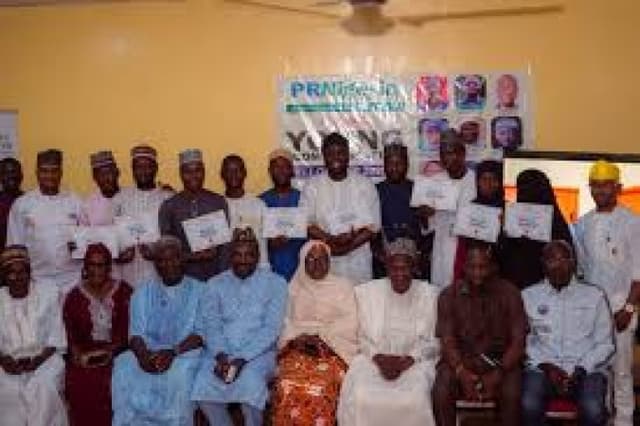





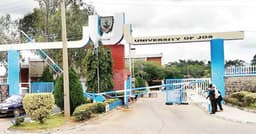
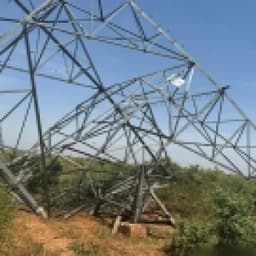
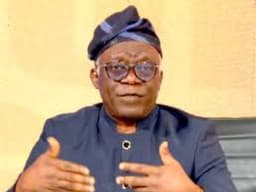



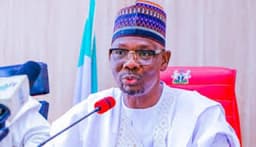







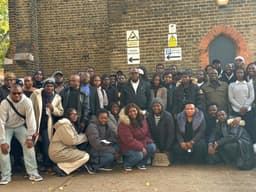

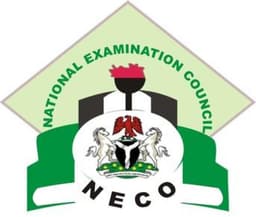



NEWS EXPRESS is Nigeria’s leading online newspaper. Published by Africa’s international award-winning journalist, Mr. Isaac Umunna, NEWS EXPRESS is Nigeria’s first truly professional online daily newspaper. It is published from Lagos, Nigeria’s economic and media hub, and has a provision for occasional special print editions. Thanks to our vast network of sources and dedicated team of professional journalists and contributors spread across Nigeria and overseas, NEWS EXPRESS has become synonymous with newsbreaks and exclusive stories from around the world.